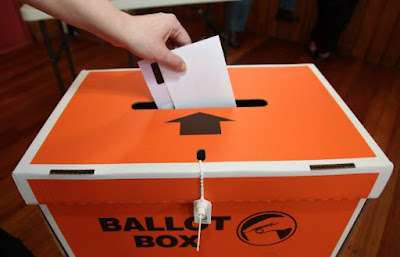DEBORAH HART is sceptical about democracy’s effectiveness. Or, at the very least, she believes it can be improved. “We should never take for granted that our electoral system, or indeed our democracy, will work effectively”, says the Chair of the Independent Electoral Review Panel.
It’s a rather curious comment for the person charged with giving our electoral system the once-over to toss – almost randomly – into the “conversation” about New Zealand’s democracy. After all, New Zealand boasts one of the oldest, continuously operating, democracies in the world. Countries much larger and more powerful than our own cannot point to an uninterrupted stretch of free and fair elections of nearly 130 years. Neither the French nor the Italians could make such a boast, and certainly not the Germans or the Russians.
Not only were New Zealand women the first to be enfranchised, but its indigenous people, the Māori, have enjoyed permanent parliamentary representation since 1867. Indeed, Māori were exercising their right to vote years before their Pakeha brethren. The citizens of very few nations have had the benefits of universal adult suffrage for as long as Kiwis. Certainly not the British or Americans. (The women of the United States won the federal franchise in 1920, and British women were not fully enfranchised until 1928!)
What’s more, our Mixed Member Proportional (MMP) electoral system, in operation since 1996, has successfully rid our democracy of the unedifying spectacles of yesteryear, when individual political parties receiving considerably less than 50 percent of the votes cast, somehow ended up commanding a majority of the seats won. MMP has also allowed political parties to use their “Party Lists” to more accurately reflect the rich diversity of the New Zealand people. Our House of Representatives, formerly a chamber dominated by old, white, men, is, at last, what it says on the tin.
There are some who lament New Zealand’s lack of a written constitution – on the model of America’s and Australia’s. Others criticise our unicameral parliament, arguing that we would be better served by restoring its second chamber, abolished by National’s first prime minister, Sid Holland, in 1950.
The problem with written constitutions is that the inevitable conflicts over their interpretation are resolved by unelected lawyers in judges’ robes. And, as anyone who’s been paying attention to US politics recently knows, allowing judges to determine what should and shouldn’t be included among the fundamental rights of citizens, can throw up some very disturbing results.
With their single house of Parliament, their unwritten – and hence flexible and adaptable – constitution, and their highly efficient electoral machinery, New Zealanders are the masters of their own destiny to a degree unencountered among many peoples. Our courts cannot strike down legislation passed by the House of Representatives, nor can one Parliament bind another – both prohibitions guaranteeing a radically majoritarian mode of government. If the essence of democracy consists of giving effect to the will of the majority, then New Zealand must rank as one of the most democratic nations on Earth.
Why then did the Minister of Justice see fit to cobble together a group of “progressive” academics, most of whom subscribe to the core beliefs of Māori nationalism, “decolonisation”, and te Tiriti revisionism, to “review” our political system? In the absence of any convincing evidence that it is “broke”, why is the Labour Government so obviously keen to “fix” our electoral machinery?
Some idea of the expectations raised by the formation of the Independent Panel may be gleaned from “advocate and political commentator” Te Matahiapo Safari Hynes, who told Radio New Zealand’s Pokere Paewai:
There’s only a certain level that we can exist as Māori within this system that’s currently here in terms of central and local government. There’s only a certain amount of things that we can achieve […..] We cannot achieve our full potential as a self-determining people within this political system. However this is what we have and we have to be a part of it.
This is, indeed, “what we have”, but one senses that Mr Hynes’s intention to be “a part of it” is the same as the Lion’s intention to be “part of” the herd of wildebeest he is tracking. One also gets the uneasy feeling that the members of the Independent Electoral Review Panel are committed to doing everything within their power to help him.
This essay was originally published in The Otago Daily Times and The Greymouth Star of Friday, 18 November 2022.








